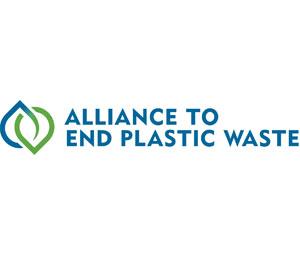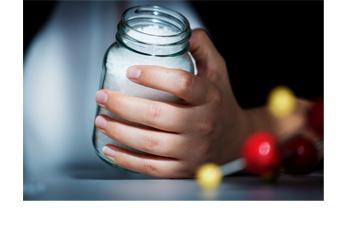Our polymer business activities around the world
By transforming oil, gas, biomass and plastic waste, we produce polymers, recycled polymers and biopolymers that can be incorporated in the plastic manufacturing process. Plastics and their properties can be harnessed to design products featuring a host of benefits (lightweight, hard-wearing, waterproof, etc.). Those qualities have cemented their status as an essential part of our everyday lives. As a leading producer of polymers, TotalEnergies has a role to play in improving how end-of-life plastics are managed and thereby preventing them from ending up in the natural environment. We are spearheading several projects to reduce the environmental impact of our polymers, promote recycling and produce polymers from renewable materials. Our ambition is to reach 1 million tons of circular polymers by 2030.
Most of our customers are processing professionals who use our polymers — polyethylene, polypropylene, polystyrene, their recycled equivalents and our biopolymers — to manufacture plastic-based finished products for different markets:
- Automotive: fenders, airbags, fuel tanks, interior components, etc.
- Construction pipes, insulation panels, artificial turf, carpets, etc.
- Health & hygiene: IV bags, syringes, razors, etc.
- Electrics & electronics: televisions, refrigerators, cables, etc.
- Packaging: protective film, bottle stoppers, trays, etc.
- Industrial packaging: containers, paint cans, etc.
Using our polymers in these markets can help our customers reduce their carbon footprint by:
- Improving building insulation performance: installing plastic insulation in 50% of buildings could save 340 million tons of CO2.
- Reducing the weight of vehicles: plastic vehicle parts are
- 40 to 50% lighter than parts made from alternative materials, which can trim 200 kg off each vehicle and thereby save 0.5 L of fuel per 100 km.
- Curbing the impact of transporting food: if food products were packaged in materials other than plastic, the overall weight would be quadrupled, energy consumption would double and greenhouse gas emissions would triple.
Source: Plastics Europe
Reduce the environmental impact of our polymers:
To help our customers rein in their CO2 emissions and stand out in their markets, our experts are working closely alongside them in pioneering innovative processes and rolling those processes out on an industrial scale. The objective is to produce high value-added polymers that can be used to create plastics offering superior environmental performance and enhanced properties (lightweight, resilient, flexible, etc.).
From production through to end use, we are focused on producing polymers with a reduced environmental footprint. For example, we are continually enhancing our production processes to use less water and energy. We are also working on the properties of our polymers to help our customers continue scaling down their use of raw materials while guaranteeing equivalent or superior levels of performance. Eco-design principles are also influencing our efforts to engineer plastics that are easier to recycle.
Our ambition is to reach 1 million tons of circular polymers by 2030
Plastic waste management is a mission-critical challenge facing the sector. We are working closely alongside all the professionals in the value chain, including plastic manufacturers, research centers, waste collection and sorting companies, and their customers, to deliver tangible solutions, such as developing different plastic recycling processes and using renewable raw materials to produce bioplastics.
Developing plastic recycling processes
Mechanical recycling is a mature technology that is capable of treating high-purity waste from collective sorting and recycling centers, as well as other post-consumer waste. Plastic waste is sorted and cleaned before being crushed and melted down for reuse. It is perfectly suited to applications in a number of markets, such as the automotive and construction industries.
As trailblazers in the sector with our Circular Compounds® range, we produce polymers that contain no less than 50% of recycled materials while delivering similar performance levels to virgin polymers.
In 2019, we acquired Synova, the French leader in producing high-performance recycled polypropylene for applications in the automotive and construction sectors. Late September 2021, we announced that the plant had doubled its production capacity for mechanically recycled polymers to achieve nearly 45,000 t/year.
In December 2021, we signed a strategic partnership agreement with Plastic Omnium to mastermind new types of polypropylene meeting the standards that apply to the automotive industry.
Advanced recycling is a leading-edge technology that complements mechanical recycling and which is capable of treating waste that cannot be mechanically recycled, thereby serving applications in high value-added markets, such as food packaging. Advanced recycling processes modify the molecular structure of plastic waste to create a basic raw material, namely monomers, which can be processed again into all-new polymers.
To accelerate this technology's development, we are joining forces with professionals across the value chain to spearhead a number of large-scale projects, such as:
- Citeo, TotalEnergies, Recycling Technologies, Mars and Nestlé Join Forces to Develop Chemical Recycling of Plastics in France
- Citeo, TotalEnergies, Saint-Gobain and Syndifrais Join Forces to Create a Polystyrene Recycling Channel in France by 2020
Together with our partner Plastic Energy, a world leader in advanced recycling, we have made the following announcements:
- In September 2020, the construction of one of the first French advanced recycling plants at our future Grandpuits zero-crude platform (France). Once up and running, the platform will able to process 15,000 t/year of plastic waste.
- In October 2021, we signed a strategic partnership agreement in the US, with plans to build an advanced recycling plant in Texas. The new plant will have the capacity to treat 33,000 t/year of plastic waste.
- In January 2022, we signed a new strategic agreement to lead an advanced recycling project in Spain. This new plant will be scaled to process 33,000 t/year of post-consumer plastic waste, most of which is currently destined for landfill or incineration.
- In February 2022, we announced that we had entered into an agreement with Honeywell to develop an advanced recycling project in Spain.
Using renewable raw materials to produce bioplastics
PLA: a bio-based, recyclable and compostable polymer
In 2016, we teamed up with Corbion, the world leader in lactic acid, to form the Total Corbion PLA joint venture, which develops, produces and markets PLA (polylactic acid), a bioplastic that can be manufactured from sugarcane or starch. Bio-based PLA can also be recycled and composted. This polymer is suitable for packaging, consumer goods, 3D printing and textiles. The joint venture owns a plant in Rayong (Thailand), with a capacity of 75,000 t/year.
The Total Corbion PLA joint venture is aiming to achieve a 10% market share by 2030 and become a global leader in PLA.
Biopolymers made from other bio-based feedstock
We provide to our customers a range of biopolymers featuring the same properties as virgin polymers by treating bio-based feedstock (vegetable oils or used cooking oil) that are now processed at the La Mède biorefinery (France).
As part of our determination to go even further, we also announced in October 2020 that we had entered into a partnership with L’Oréal and Lanzatech to produce the first polyethylene packaging made from industrial carbon emissions.







